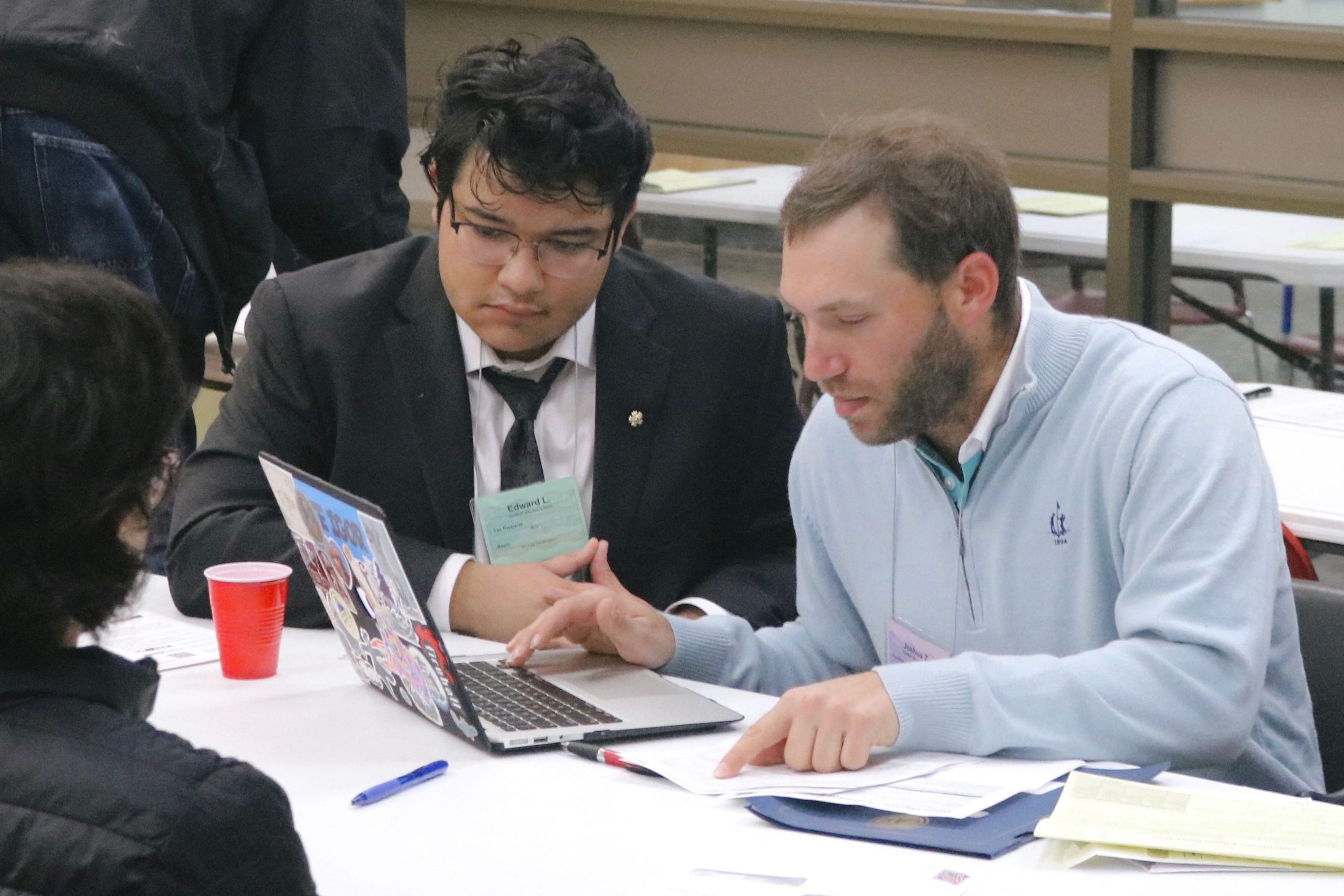Accelerated 3-Year Degree Plan

Bachelor of Science in Economics
At UNC Asheville, students pursuing a B.S. in Economics can accelerate their academic journey through a thoughtfully structured 3-Year Degree Program. This pathway allows driven students to graduate one year early—without compromising the depth and rigor of their education. Summer courses and strategic planning make it possible to earn your degree while maintaining opportunities for electives, study abroad, and internships.
Why Choose a 3-Year Degree?
With the accelerated course of study in economics, students can focus their interests in areas such as environmental economics, international economics, monetary economics, and finance, and beyond. All economics majors undertake a research project, and many graduates use this research as a stepping stone to graduate school or a career in a variety of fields, including finance, small business, education, the nonprofit sector, government, and more.
Advantages:
- Gain earlier access to professional job opportunities in your chosen field
- Reduce the total financial burden of your education by completing your degree in less time
- Opportunity to complete Bachelor’s & Master’s in 5 years or less
- More time to focus on graduate study, international travel, or early career advancement
How it Works:
- Accelerated course of study with summer and fall/spring semesters
- Focus on areas like environmental, international, monetary economics, and financial systems
- All majors complete a research project (capstone)
- Graduates enter careers in finance, government, nonprofit, education, and more
Economics Department Programs

Economics
B.S. Minor Teacher Licensure
In the economics major, we ask big questions to uncover meaningful answers. Guided by economic principles, these answers solve global issues from poverty to the environment.

Finance
Minor
In the finance minor, we study how financial systems operate and how strategic decisions are made. Grounded in economic and quantitative principles, this minor equips students with tools to understand markets, manage risk, and make informed financial choices.
Economics 3-Year Course Outline
Whether you're planning a career in finance, public policy, data analysis, or teaching, this accelerated degree program helps you reach your career goals faster—while maintaining a comprehensive liberal arts foundation.
Year 1
-
FYS 178
-
ECON 103
-
STAT 185
-
ECON 291
-
ECON Elective
-
Diversity Intensive (DI)
-
2 General Electives or LAC Courses
(or 1 General + 1 ECON Elective — including Study Abroad options)
-
LANG 120
-
HUM 124
-
Language 1 (or placement)
-
DI
Year 2
-
ECON 292
-
ECON 365
- ECON Elective
- 2 General Electives or LAC Courses
(or 1 General + 1 ECON Elective — including Study Abroad options)
-
HUM 214
-
Language 2
-
Scientific Perspectives + Lab
-
Social Science (any ECON)
-
HUM 324
Year 3
-
ECON 450
-
ECON Elective (ex: ECON 365)
-
Diversity Intensive – Research (DI-R)
- ECON 480 (Capstone)
-
ARTS 310
-
HUM 414 / LA 478
Important Notes and Degree Requirements
Please read the following notes carefully to understand course requirements, timing, and planning considerations for the accelerated 3-year Economics degree plan.
- The courses in this Three-Year Plan are those whose satisfactory completion is necessary to meet the Liberal Arts Core and Economics Major requirements. The requirements overlap twice: STAT 185 is required of Economics majors and satisfies the LAC Quantitative Perspectives requirement; every 3-hour (or more) economics course satisfies the LAC Social Science requirement.
- Additional elective courses must be taken to meet the 120 credit hour graduation requirement. This plan is but one of many possible paths to graduation from UNC Asheville with a major in economics. For example: Lang 120 does not have to be taken in Semester 1, but it is preferable to take it before Humanities 124. If LANG 120 is taken Semester 2, it is preferable to take Humanities 124 Semester 3. It is not necessary to take STAT 185 Semester 3, but it is necessary to take it before taking ECON 365, a required course for the major, which is currently taught only in the Fall. ECON 291 and ECON 292 may be taken in any order. It is not necessary to take ECON 103 in Semester 1 but since it is required for most other economics courses it is recommended to
take ECON 103 in Year 1. ECON 450 is a prerequisite for ECON 480. ECON 450 is ordinarily taken Semester 5 and ECON 480 Semester 6. Of the 12 hours of economics electives required of majors (3 courses), at least 3 hours (1 course) must be at the 300 or 400 level.
- Course timing issues include: Of the core courses in the major, ECON 291 is ordinarily only taught in the Spring; ECON 292 and ECON 365 only in the Fall. ECON 103, ECON 450, and ECON 480 are generally taught every semester. Of the elective courses in the major, only ECON 306 is taught every semester. Some elective courses are taught only in the Fall, others only in the Spring, and others only alternating Falls or Springs. Consult the course catalog for details.
- Additional considerations: When choosing your elective courses consider groups of courses that constitute unofficial “mini-concentrations.” For example, a student interested in finance might take ECON 305, 306, and342 among their electives. Consult the catalog and/or an economics professor for additional combinations.The economics department has intentionally limited the number of hours required to graduate in our major to encourage exploration of courses in other majors. Many courses offered in the Humanities, Natural Sciences and Social Sciences have connections to economics as a discipline, and much of the most interesting recent research in economics crosses disciplinary boundaries. Consult the catalog and/or economics professors for advice on courses offered in other disciplines that are of special interest to economics majors. If you are considering graduate school in economics you should strongly consider either minoring or majoring in mathematics.
- Refer to the current catalog for frequency of elective course offerings (some courses are offered on a Fall/Springrotation) and specific prerequisite requirements for each course. While you may use the above as a planning tool,please work with your academic adviser to create a customized plan to meet your needs and graduation timeline.
- Study abroad is an excellent complement to an Economics major or minor. For a summer experience, studyabroad between years 2 and 3 is recommended. If a student will study abroad during the academic yearand still intend to graduate in 3 years, precise consideration of course transfer potential is required.Consult with your academic advisor and the study abroad office well in advance of your trip to ensurecourse credit transfer.
- If possible, general electives can be taken at any time in consultation with your academic adviser. Credit hourbreakdowns appear below.
- Credits in the major + correlate courses 40 HOURS
- Credits in the Liberal Arts Core 47 HOURS (minimum)
- Potential credits for electives / minor 35 HOURS
Ready For What's Next?
Our Bachelor of Science in Economics degree program allows you to connect with contemporary issues as you develop your skills in meaningful, impactful research opportunities. Supportive faculty, scholarship opportunities, and student clubs and organizations enrich your educational experience and prepare you to excel in your future endeavors.

